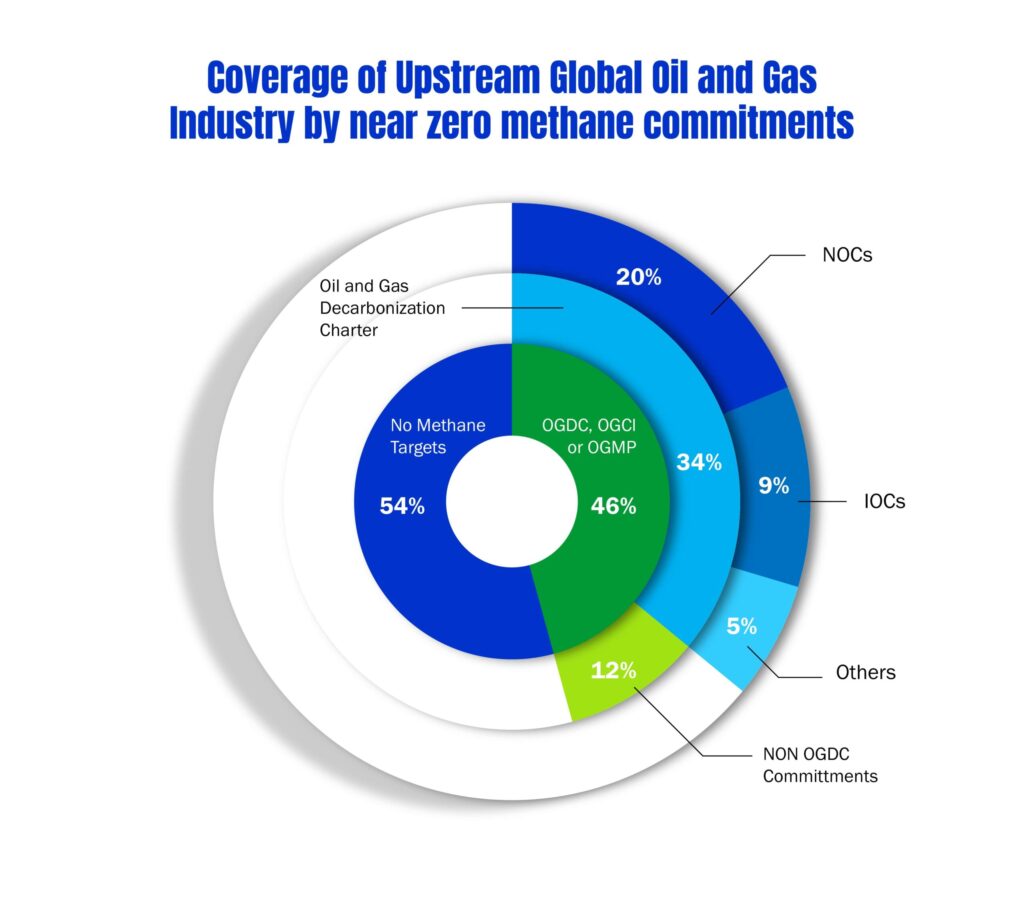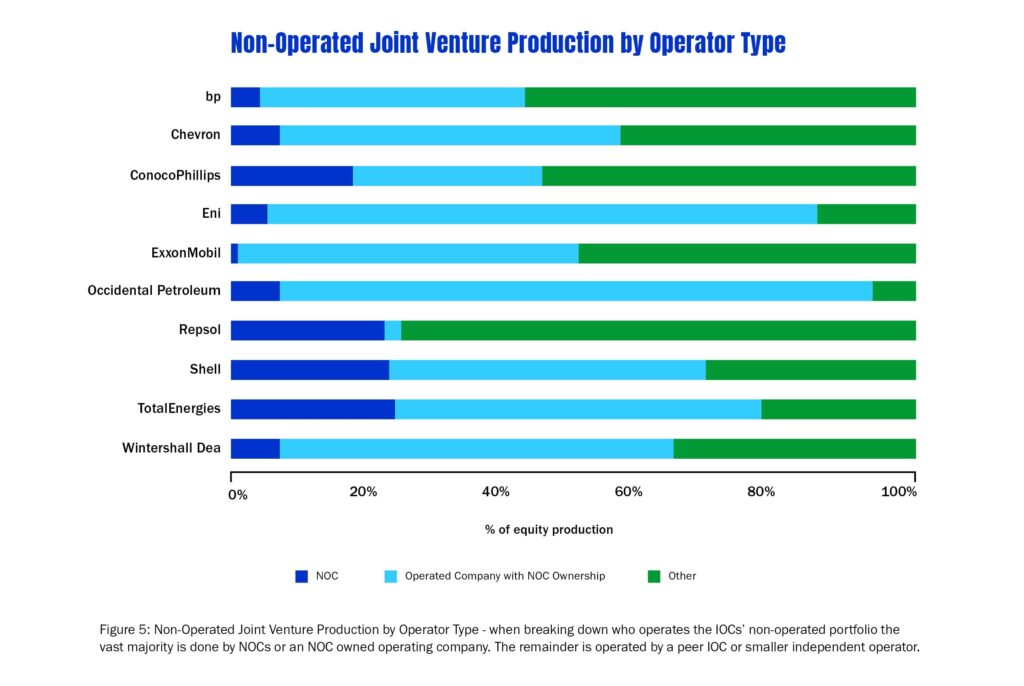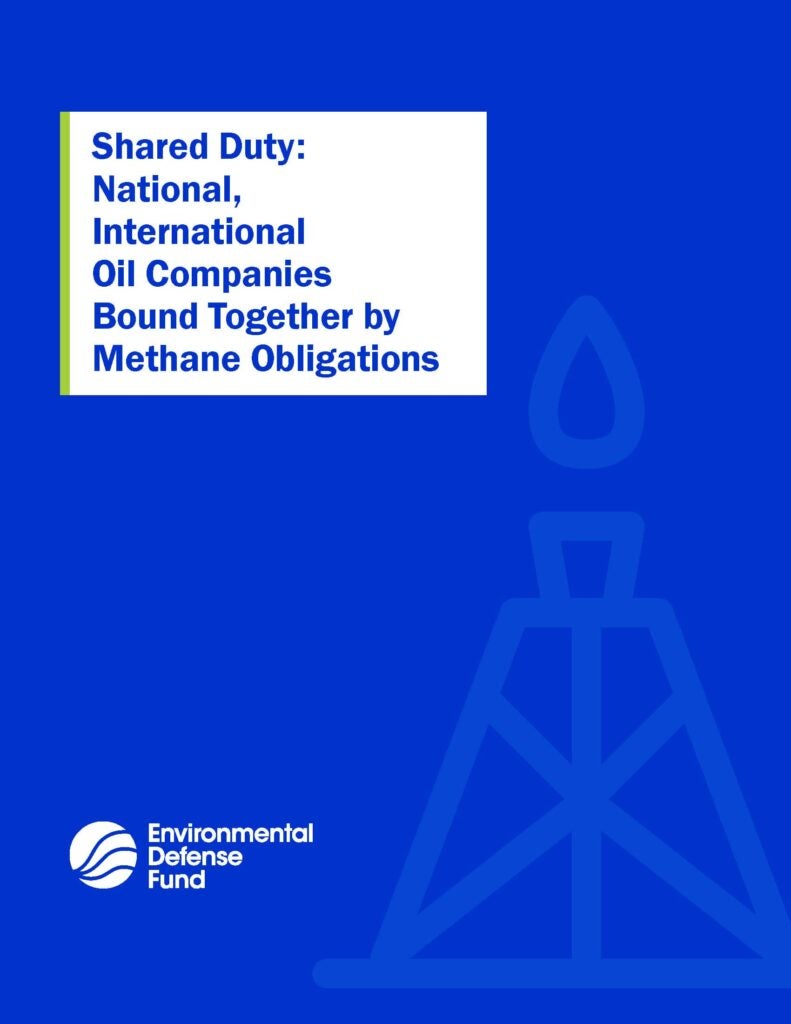- Resources
- Shared duty: National, international oil companies bound together by methane obligations
Resources
Shared duty: National, international oil companies bound together by methane obligations
Published: March 18, 2024 by Andrew Baxter
Methane emissions are a critical challenge for the world’s oil and gas industry, and also a crucial opportunity. Methane, the primary ingredient of natural gas, is a potent greenhouse gas with over 80 times the warming power of carbon dioxide over the first 20 years after its release into the atmosphere, through leaks, vents and flares.
At COP28, 30 national oil companies (NOCs) signed onto the Oil and Gas Decarbonization Charter (OGDC), committing to limit their methane intensity to 0.2% in their upstream operations by 2030. To achieve this goal, many of the NOCs will need technical and financial support from their international oil company (IOC) partners.

No company is an island – IOCs and NOCs have extensive ties across the globe.
- The world’s largest IOC portfolios are composed of wholly owned assets and joint ventures. 75% to 90% of assets are part of joint ventures.
- Joint ventures are also an important option for companies to gain access to resources. In NOC-dominated markets, they bring access to cutting-edge technologies, and added capacity and experience to modernize, optimize and improve operational efficiency.
- On average, 50% of the equity production from IOCs comes from joint ventures where the IOC owns a share of the project but does not operate it.
- Joint ventures present one of the most significant opportunities to manage the oil and gas industry’s climate risk, secure new emission reduction commitments, source financing and distribute technical expertise that will drive real-world emission reductions.

Though the joint venture challenge has historically been a barrier to the systemic industry-wide efforts to reduce emissions, the Oil and Gas Decarbonization Charter opens new opportunities for historic collaboration across the vast web of the global industry. Indeed, the growing consensus across the global industry to take this issue seriously has already begun to create formal partnerships between IOCs and NOCs.
IOCs have obligations, and face mounting commercial and regulatory pressures, to incentivize their operating partners to accelerate the energy transition and support them with the means to deliver in ways consistent with their own corporate commitments. This includes addressing methane emissions and flaring.
Shared duty: National, international oil companies bound together by methane obligations
To deliver on broader climate pledges, industry must engage national oil companies in its efforts. Joint venture partnerships are a crucial channel for technical and financial support from IOCs.


